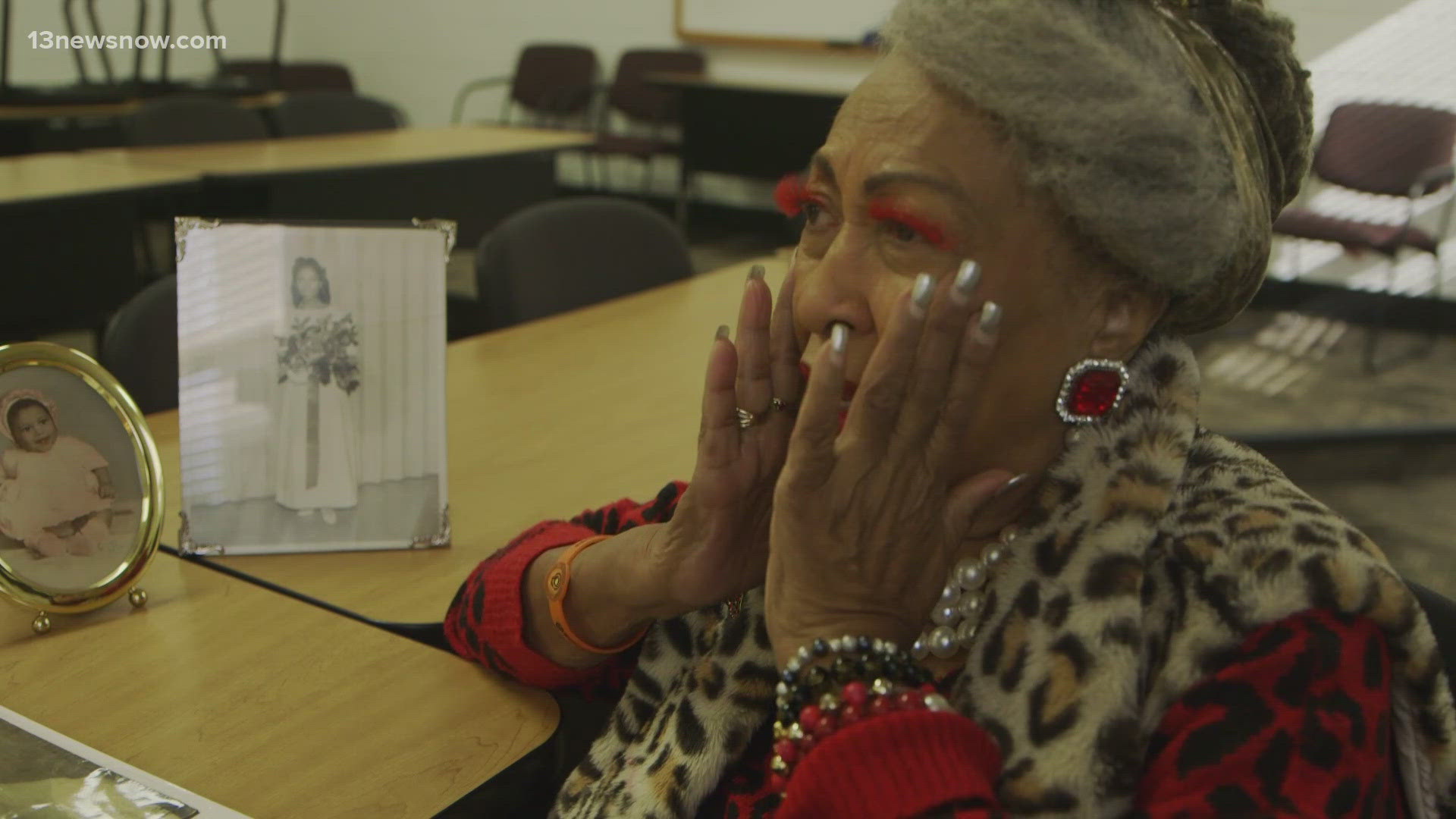VIRGINIA BEACH, Va. — Living underneath the daily roar of Naval Air Station Oceana’s fighter jets may sound like a nuisance. But generations have learned to love all that comes with living along Birdneck Road because roots run deep in Virginia Beach's Seatack neighborhood.
Stepping into a Sunday service at one of the longtime historic congregations in the community is like stepping into the past. Stepping back in time to when everybody knew everybody and nobody was a stranger.
"I tried living a couple places, Florida, Washington D.C., Maryland, but I always had sand in my shoes and came back home," Donnie Gregory told 13News Now.
Gregory, who's lived in Seatack for almost seven decades, is the man you'll hear behind the microphone at St. Stephen's Church of God in Christ.
It's the same congregation he's attended since childhood.
"I guess I was so used to the camaraderie in this community, that fellowship with family. My family is here, I guess I’m addicted to that type of relationship," he said.
Like many who call Seatack home, he’s lived here a long time and lived through a lot of change.
“We [family] tended about 100 acres, my dad had a vegetable farm when he first started out on Newtown Road three times a week he had a mule and wagon," said Simuel Johns, who turned 98 last year.
In Seatack, families can trace their lineage back generations, and in some cases even back as early as the 1800s.
The historic African American community prospered in Princess Anne County, miles away in the shadow of a segregated Virginia Beach Oceanfront. As Princess Anne County dissolved into the expansion of the city of Virginia Beach, the Seatack community grew as well, growing as a self-sustaining community of African Americans through the mid-1900s.
“We had to stop and eat at the back doors, separate bathrooms at the Greyhound station," said longtime resident Rosa Boone.
"Segregation to think about back to those days, it was tough. I'm not going to lie, cops were hard to Black people," Johns said.
Residents have long known their history matters, now it’s officially in the record books.
“A community that’s still like small local communities used to be," said Mark Reed, the historical planning commissioner for the City of Virginia Beach. "Today in our neighborhoods we don’t know the neighbors next to us. Here, they know just about everyone.”
In December, Seatack landed on Virginia's landmark registrar of historic places through the Department of Historic Resources.
It “obviously instills pride,” said Reed. “In particular, recognizing African American resources and communities… because they’ve been overlooked for a long time.”
The honor opens the door for historical tax credits and federal protections for the community.
“Getting it on the record like it is now… it means everything. Maybe it stops some of these people coming into our community with ideas that doesn’t mirror our community,” added Gregory.
But more than anything, it’s a symbol that Seatack’s residents embody what it means to be living history.
“It shows we matter," said Boone.

